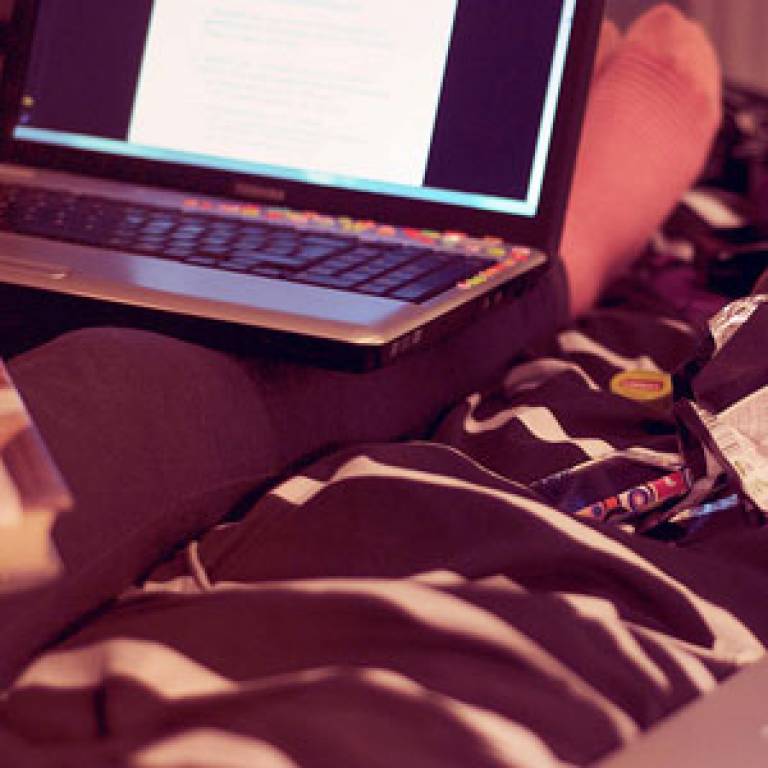Social media and drinks before bed are affecting teenagers' school performances
1 December 2015
Drinking caffeinated drinks and using social media 30 minutes before bedtime is significantly reducing sleep quantity in teenagers and negatively affecting their school performance, according to new research from UCL Institute of Education (IOE)'s Lifespan Learning and Sleep Laboratory.

The role of environmental factors on sleep patterns and school performance in adolescents written by Dr Dagmara Dimitriou, Dr Frances Le Cornu Knight and Patrick Milton shows that the total sleep and bedtimes of teenagers on weekdays are strongly associated with poorer academic achievement at school.
The study found that total sleep time and earlier bedtimes (measures of sleep quantity) were most strongly correlated with better academic results whereas problems with getting to sleep and waking up (measures of sleep quality) had a stronger link with students' performances on verbal reasoning tests followed by grade point averages. This suggests that sleep quantity is more closely related to academic performance, whilst sleep quality is more closely related to cognitive assessment.
Dr Dimitriou said:
"Sleep is essential for processes such as memory consolidation, optimal learning capacity and academic performance. It's very worrying to find that teenagers, who need 10 hours' sleep a night, are not getting the sleep they need for their developing brains. The increasing awareness about the negative effects of stimulants and late night media use on sleep and consequently academic performance is crucial and more research in this area is needed. Exciting television shows and social media may serve to increase physiological arousal making it more difficult to go to sleep."
Forty-eight 16-to 19-year-old students were recruited through an independent sixth form college in central London to take part in the study. The adolescents in the study achieved just over 7 hours of sleep with an average bedtime at 11.37 pm. This confirms findings from previous studies showing that teenagers are getting less and less sleep, 2 to 3 hours less sleep than is needed for optimal brain development and a healthy lifestyle.
Previous studies have shown that the negative impact of poor sleep on academic functioning is not always matched by a realisation of this fact by students themselves and therefore they may have little motivation to alter bad sleep habits.
Dr Dimitriou and the team at the
Lifespan Learning and Sleep Laboratory are now embarking on examining sleep and
cognitive functioning on a larger cohort of students.
Links
- Research paper in Frontiers in Psychology [Open Access]
- Dr Dagmara Dimitriou's academic profile on Iris
- UCL Institute of Education Lifespan Learning and Sleep Laboratory
- UCL IOE Department of Psychology and Human Development
Image
- 27/365 (courtesy of Jamie Henderson via Flickr)
Media contact
Siobhan Pipa
Tel: +44 (0)20 7679 9041
Email: s.pipa [at] ucl.ac.uk
 Close
Close

